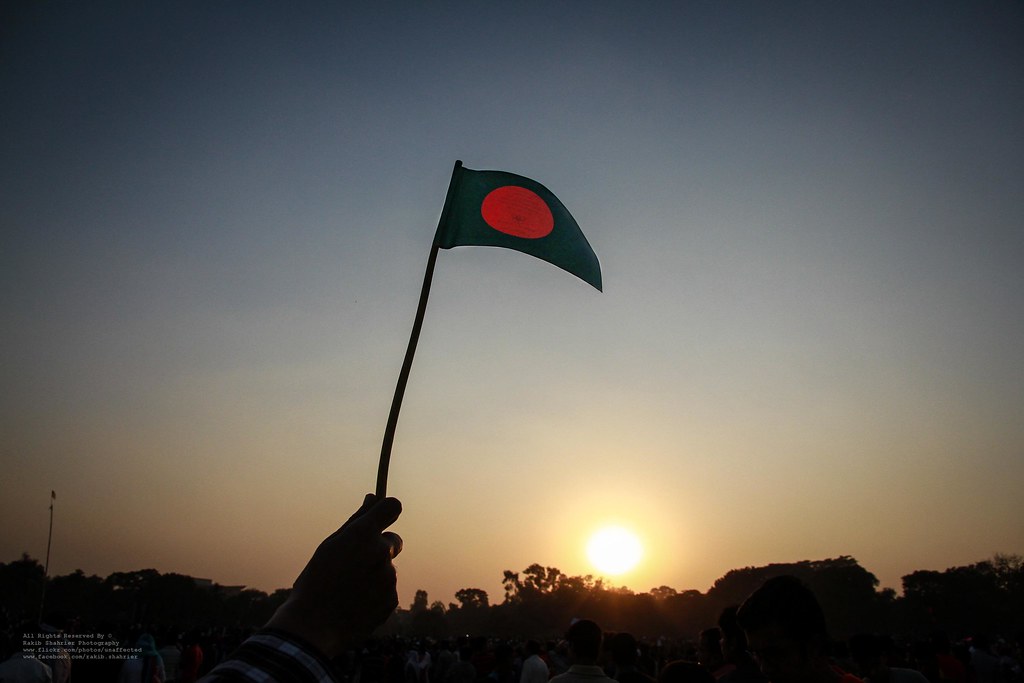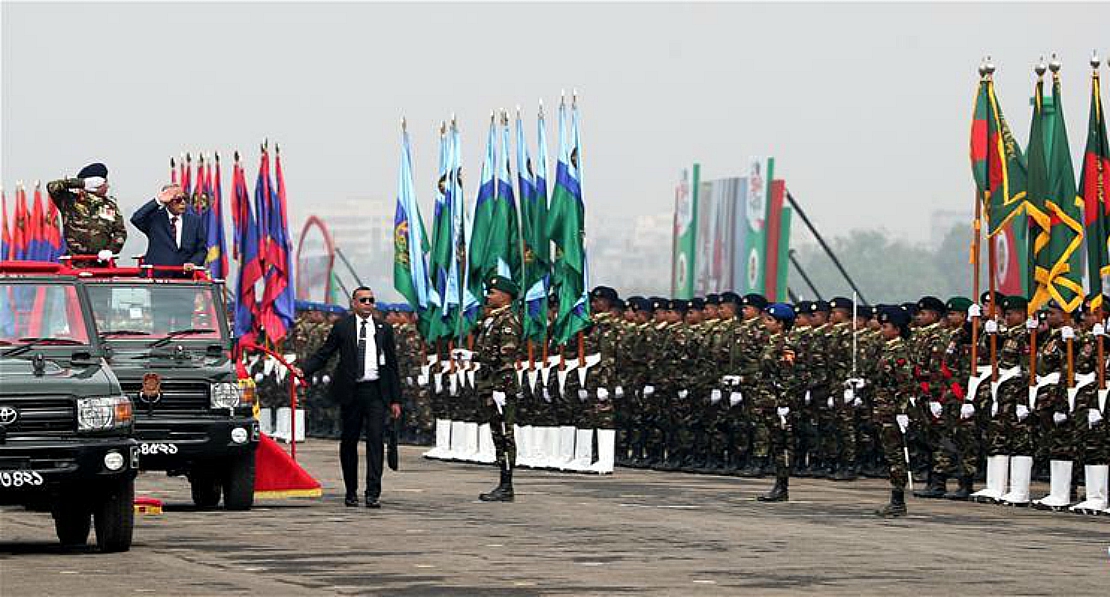

Most United Nations member nations were quick to recognise Bangladesh within months of its independence. The Surrender of Pakistan Armed Forces marked the end of the Bangladesh Liberation War and the creation of Bangla Desh (later reduced to a single word). Main article: Instrument of Surrender (1971) Recognition of Bangladesh File:PakistanSurrender1971.jpg Aurora accepted the surrender without a word, while the crowd on the race course started shouting anti-Niazi and anti-Pakistan slogans.

Lieutenant General Jacob Rafael Jacob, Chief of Staff of the Indian Eastern Command, along with the other commanders of Indian naval and air forces, acted as witnesses on behalf of India. Khandker acted as witness to the surrender. On behalf of Bangladesh, Air Commodore A. Callaghan of the Pakistan Air Force's Eastern Air Force Command, who signed the agreement. Also present were Vice-Admiral Mohammad Shariff, commander of the Pakistani Naval Eastern Command and Air Vice-Marshal Patrick D. Khandker, Deputy Commander-in-Chief of the Bangladesh Armed Forces, and Lieutenant General J F R Jacob of the Indian Eastern Command, acted as witnesses to the surrender. Lieutenant General Amir Khan Niazi and Lieutenant General Jagjit Singh Aurora, Joint Commander of Indian and Bangladesh Forces, signed the instrument amid thousands of cheering crowds at the race course. The surrender took place at the Ramna Race Course in Dacca on December 16, 1971. The Instrument of Surrender was a written agreement that enabled the surrender of the Pakistan Eastern Command in the Bangladesh Liberation War, and marked the end of the Indo-Pakistani War of 1971 in the Eastern Theater. On 16 December 1971, Lieutenant General Amir Khan Niazi, CO of Pakistan Armed Forces located in East Pakistan signed the Instrument of Surrender. One of the most violent wars of the 20th century, it witnessed large-scale atrocities, the exodus of 10 million refugees and the Killing of 3 million people. The war pitted East Pakistan and India against West Pakistan, and lasted over a duration of nine months. The 1971 Bangladesh Liberation War (Bengali language: মুক্তিযুদ্ধ Muktijuddho) was a war of independence, which resulted in the secession of East Pakistan from the Islamic Republic of Pakistan and established the sovereign nation of Bangladesh. Signing event of Surrender instrument by Pakistan Chief of Army staff A.K.

Jagjit Singh Aurora, which marked ending the 9 month-long Bangladesh Liberation War and 1971 Bangladesh genocide and officially secession of East Pakistan into Bangladesh.

The Commanding officer of the Pakistani Forces General AAK Niazi surrendered his forces to the Allied forces commander Lt. Victory day (Bengali language: বিজয় দিবস Bijôy Dibôs) is a national holiday in Bangladesh celebrated on December 16 to commemorate the victory of theĪllied forces High Command over the Pakistani forces in the Bangladesh Liberation War in 1971. National Parade ground, Dhaka, Bangladesh.įlag hoisting, parades, singing patriotic songs and the national anthem, speeches by the President and Prime Minister, entertainment and cultural programs.


 0 kommentar(er)
0 kommentar(er)
